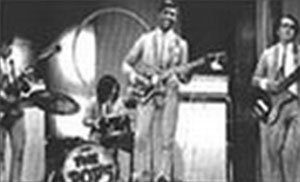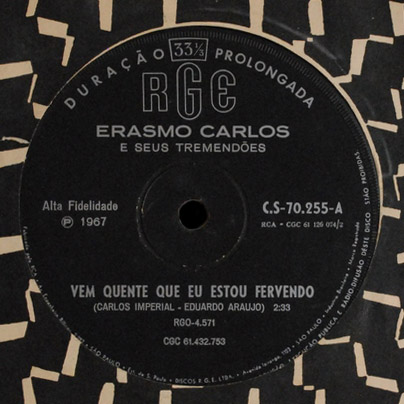

When the Philips contract ran out he returned to his home in Minas Gerais for a few years until signing with Odeon in time to hit with the Jovem Guarda pop movement. Eduardo topped the charts with his very first single on Odeon, the upbeat but trite “O Bom”, from March, 1966. It was written by Carlos Imperial, a producer and presenter of the TV show O Clube do Rock.
His band on that single, Os Fevers, also shows up on some of the records of another Imperial protégé, Erasmo Carlos, including “Deixa de Banca”, a version of Nino Ferrar’s “Les Cornichons” with Portuguese lyrics by Araújo. Carlos’ version was released as a single in June, 1966. Araújo’s the following month on an EP with “O Bom”.
Araújo and Imperial co-wrote over a dozen songs in the next year. His second single “Goiabão” is one of his very best, hooking you with a funky opening beat and Eduardo’s “unh”s, every tossed-off phrase answered by horns and a chorus that keeps the rhythm exciting.
Where did that vocal style come from? The emphasis on the gritty and guttural may derive from listening to American soul recordings, but there’s also a distinctly Brazilian lyrical agility and grace, not to mention a sense of humor that borders on camp or hysteria. I can’t think of any US singer that quite matches it.
“Vem Quente Que Eu Estou Fervendo” (this could be translated as “It’s So Hot I’m Boiling”) was one of the greatest Araújo and Imperial collaborations. The first released version was (as far as I can tell) by Erasmo Carlos and his band Os Tremandões, for their January, 1967 LP on RGE, O Tremandão, soon followed by Araújo’s version in March on his first LP, O Bom.
Both artists would release the song as the A-side of singles in April. I have to give the edge to Erasmo Carlos, as his version sounds so unhinged. I’ve also heard a shorter version credited to just Os Tremandões, though Erasmo is definitely singing on that one too. Apparently it comes from Os Tremandões own LP on the Palladium label. Carlos also sang a Spanish version of the song, “Estoy Hirviendo”.
(Does anyone have good scans of Araújo’s single versions of “Goiabão” and “Vem Quente Que Eu Estou Fervendo” – or the Palladium LP by Os Tremandões?)
By late 1967 Araújo had found a new collaborator, Chil Deberto, who I can’t find much info about. In November 1968 Araújo released an EP featuring a surprising cover – Lulu’s 1967 single “Love Loves to Love, Love” with new lyrics from Deberto, titled “Amor Amor Amor”. Araújo and Deberto give the song a completely different feel, keeping the tough funkiness of the verses without Lulu’s rasp, while giving the chorus a dreamy, hallucinogenic quality.
Of the other songs on the EP, “Ela Era O Meu Amor” has a hard-driving soul sound, while “Se Alguem Fez Voce Me Esquecer” begins with a heavy dose of distorted guitar and finds a good groove on the verses then sacrifices that to a conventional chorus. “Com Muito Amore Carinho” shows the smoother pop side of Araújo’s singing.
None of these four songs were picked for single release or used as album tracks. Araújo’s next project, the 1969 LP A Onda é Boogaloo took his r&b leanings further, notably with a version of Arthur Conley’s “Funky Street” titled “Rua Maluca”.
Note: my understanding of Jovem Guarda is limited. The sources for this article are mainly the excellent discographies listed on jovemguarda.com.br/, and credits on what labels I could find. Any further background or info would be appreciated. Some biographical info on Araújo from Túnel do Tempo.
Thanks to Bossy Boots for playing “Amor Amor Amor” at one of our Magnetic Field nights a few years back – it took me this long to track down a copy!
Special thanks to Borja for the scan of the Erasmo Carlos single.

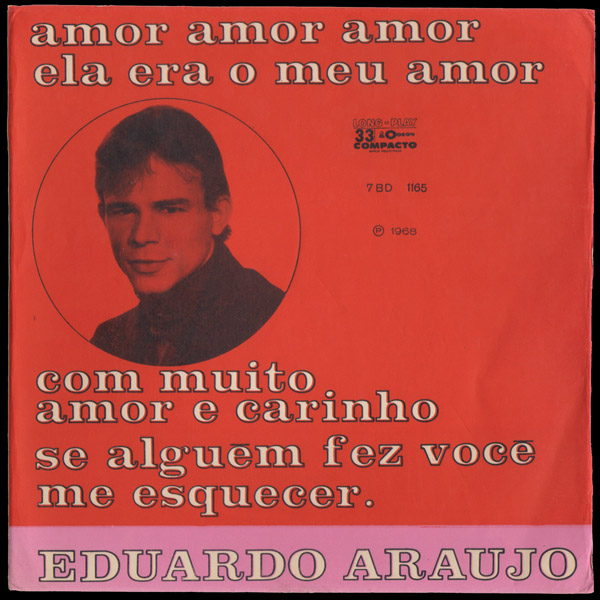
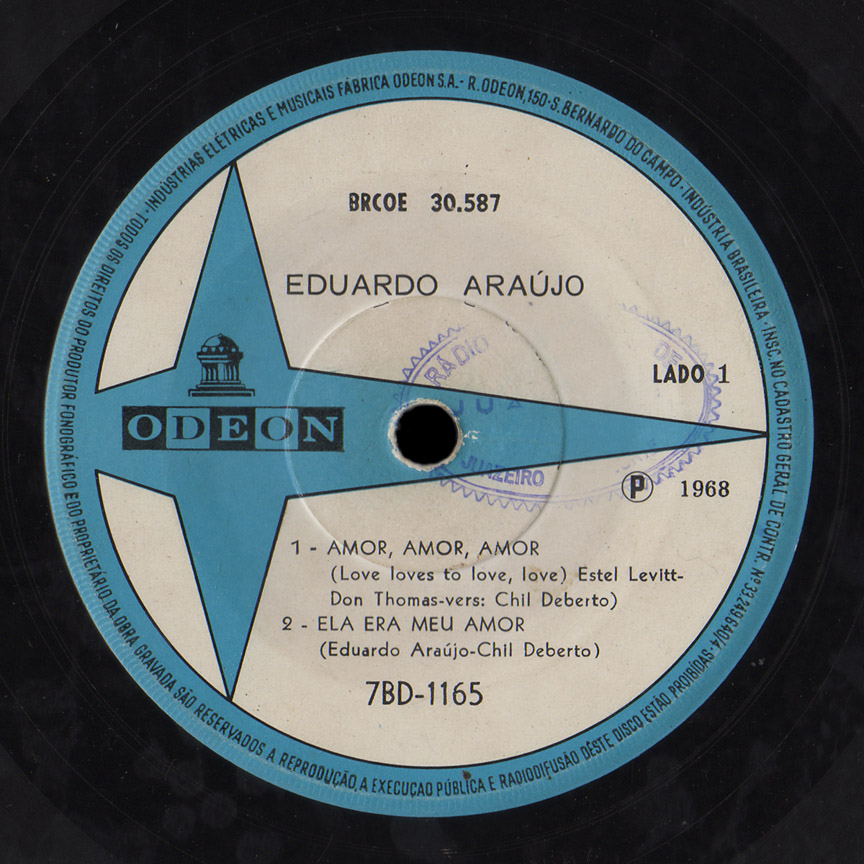

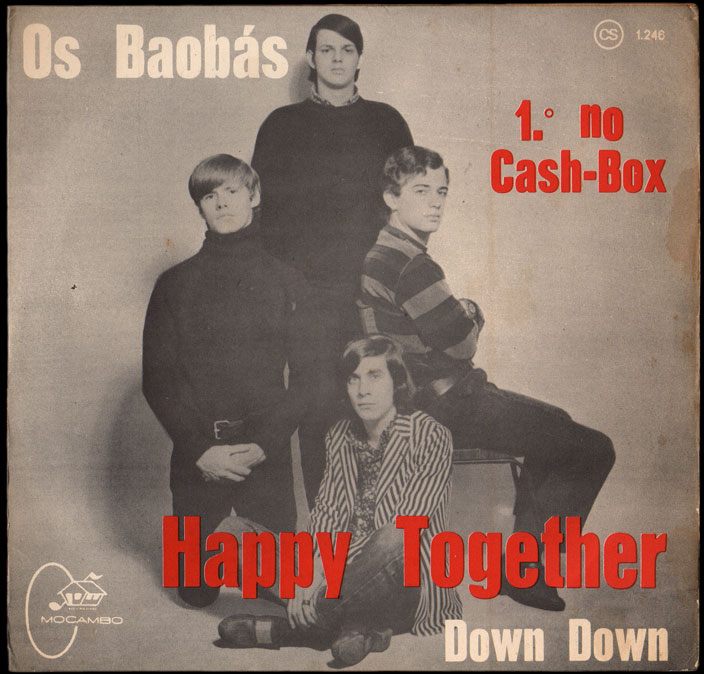
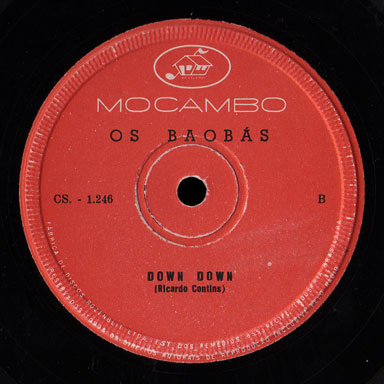
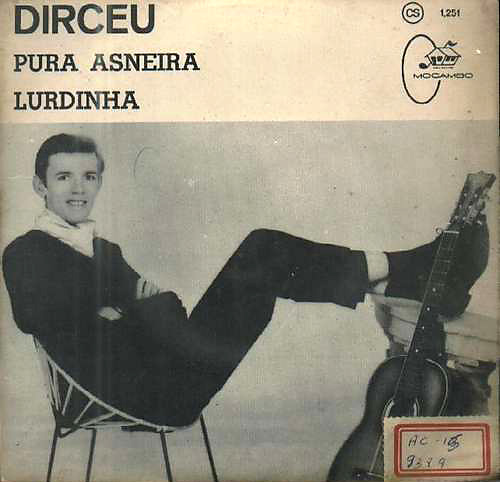
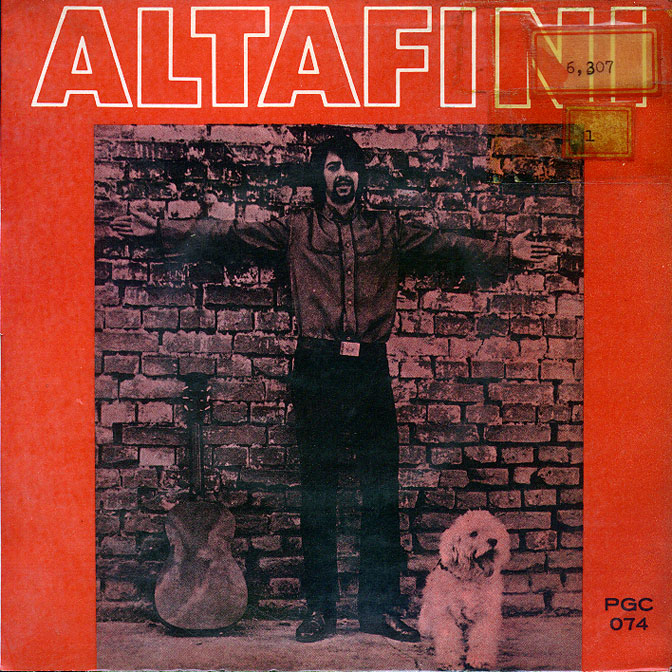
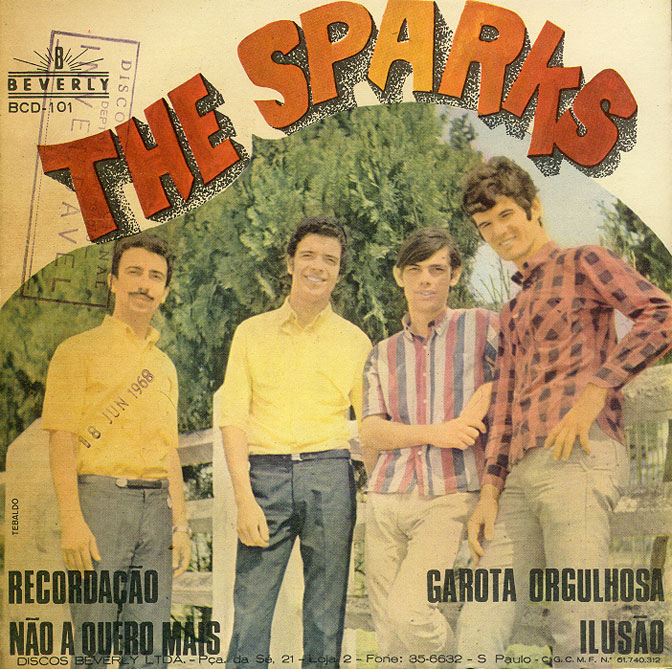
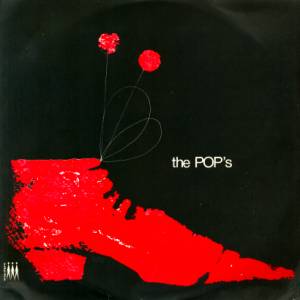
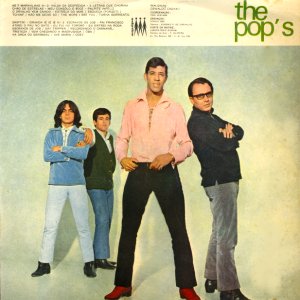
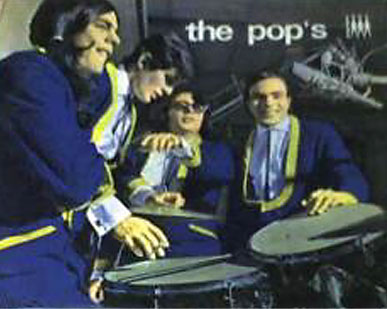
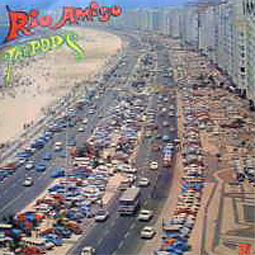 The Pop’s are one of the best and most underrated Brazilian pop-rock groups from the 1960s. Like Renato e Seus Blue Caps, The Sunshines and The Fevers, they are from our fun-in-the-sun postcard land, Rio de Janeiro; but, unlike them, they didn’t rely much on covers of current hits or their own material, being best remembered for their unlikely but very good rock versions of Carnaval evergreens and Christmas, birthday and suchlike songs, as well as having been purveyors of the samba-rock fusions backing the late, great singer-songwriter Oswaldo Nunes or on their own. But their least remembered albums are the ones on which they ventured into their own songwriting.
The Pop’s are one of the best and most underrated Brazilian pop-rock groups from the 1960s. Like Renato e Seus Blue Caps, The Sunshines and The Fevers, they are from our fun-in-the-sun postcard land, Rio de Janeiro; but, unlike them, they didn’t rely much on covers of current hits or their own material, being best remembered for their unlikely but very good rock versions of Carnaval evergreens and Christmas, birthday and suchlike songs, as well as having been purveyors of the samba-rock fusions backing the late, great singer-songwriter Oswaldo Nunes or on their own. But their least remembered albums are the ones on which they ventured into their own songwriting.